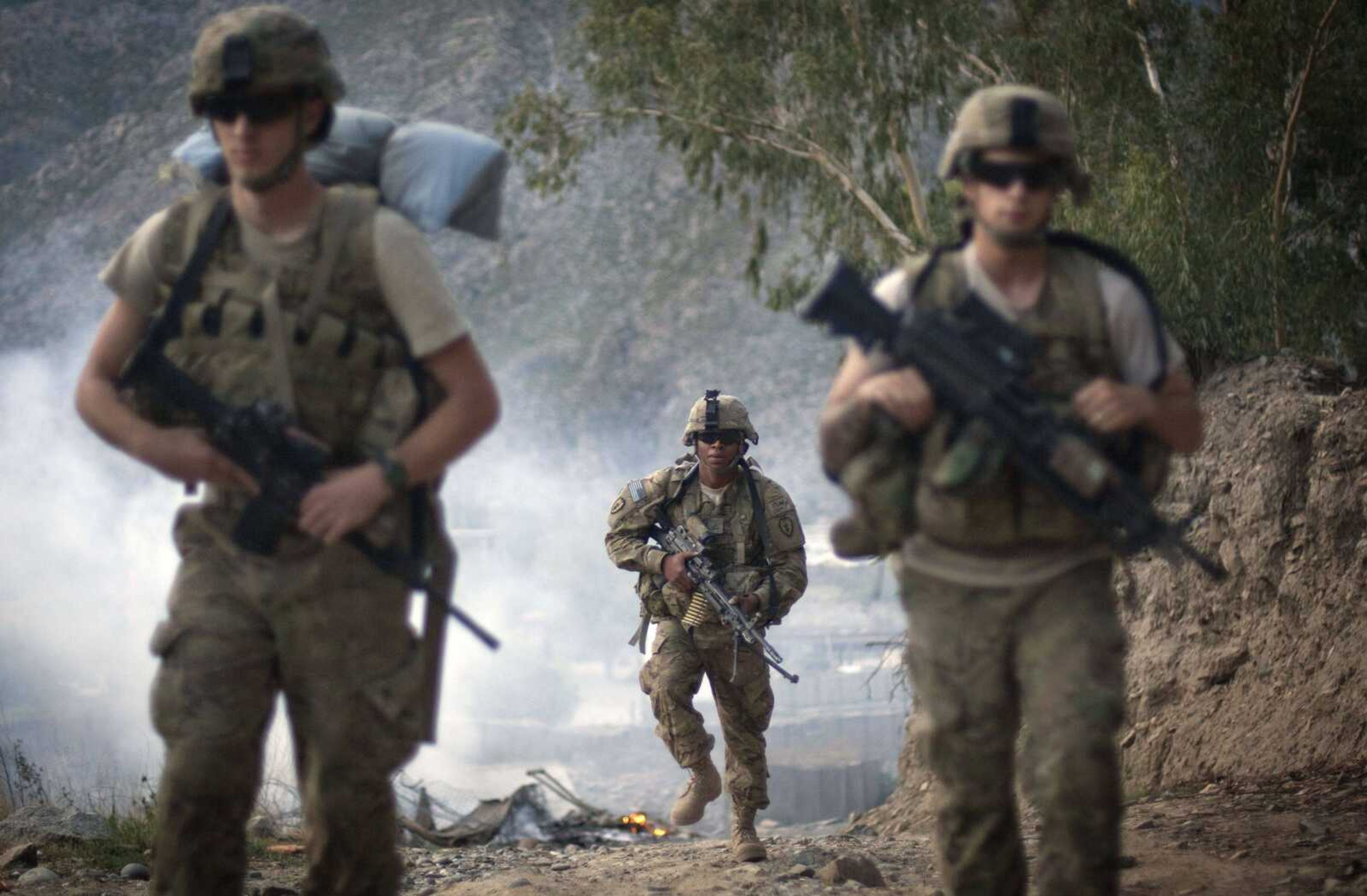Sources: Obama broadens mission in Afghanistan
WASHINGTON -- U.S. troops in Afghanistan may again engage Taliban fighters, not just al-Qaida terrorists, under new guidelines quietly approved by President Barack Obama, administration officials said. The armed forces were to limit their operations in Afghanistan to counterterrorism missions against al-Qaida after this year, until Obama broadened the guidelines in recent weeks. ...
WASHINGTON -- U.S. troops in Afghanistan may again engage Taliban fighters, not just al-Qaida terrorists, under new guidelines quietly approved by President Barack Obama, administration officials said.
The armed forces were to limit their operations in Afghanistan to counterterrorism missions against al-Qaida after this year, until Obama broadened the guidelines in recent weeks. The plan comes as the U.S. combat mission in Afghanistan draws to a close, thousands of troops return home, and the military prepares for a narrower counterterrorism and training mission for the next two years.
Obama's decision also means the U.S. can conduct air support when needed.
One U.S. official said the military could go after the Taliban only if it posed a threat to American forces or provided direct support to al-Qaida, while the latter could be targeted more indiscriminately.
"To the extent that Taliban members directly threaten the United States and coalition forces in Afghanistan or provide direct support to al-Qaida, however, we will take appropriate measures to keep Americans safe," the official said.
The Taliban's presence in Afghanistan far exceeds that of al-Qaida, adding significance to Obama's authorization. The president's decision came in response to requests from military commanders who wanted troops to be allowed to continue to battle the Taliban, the U.S. officials said.
The New York Times first reported the new guidelines. Officials confirmed details to The Associated Press on the condition of anonymity because they were not authorized to discuss Obama's decisions by name.
The decision to expand the military's authority does not impact the overall number of U.S. troops staying in Afghanistan. Earlier this year, Obama ordered the U.S. force presence to be reduced to 9,800 by the end of this year, a figure expected to be cut by half by the end of 2015.
Obama wants all U.S. troops out of Afghanistan a year later, as his presidency draws to a close.
Some of the Obama administration's planning for the post-2014 mission was slowed by a political stalemate in Afghanistan earlier this year. It took months for the winner of the country's presidential election to be certified, delaying the signing of a bilateral security agreement that was necessary in order to keep U.S. forces in the country after December.
In Kabul, officials with the Afghan Defense Ministry declined to comment Saturday, while officials with the presidency could not be reached.
However, Afghan military analyst Jawed Kohistani said the move probably will be welcomed. President Ashraf Ghani's new administration, upon taking office, immediately signed a deal with the U.S. to allow a residual force of 12,000 foreign troops in the country.
"We have heard from many military officers who are involved in direct fighting with the Taliban and other insurgents that still there is a need for more cooperation, there is need for an ongoing U.S. combat mission and there is need for U.S. air support for the Afghan security forces to help them in their fight against the insurgents," Kohistani said.
Connect with the Southeast Missourian Newsroom:
For corrections to this story or other insights for the editor, click here. To submit a letter to the editor, click here. To learn about the Southeast Missourian’s AI Policy, click here.










